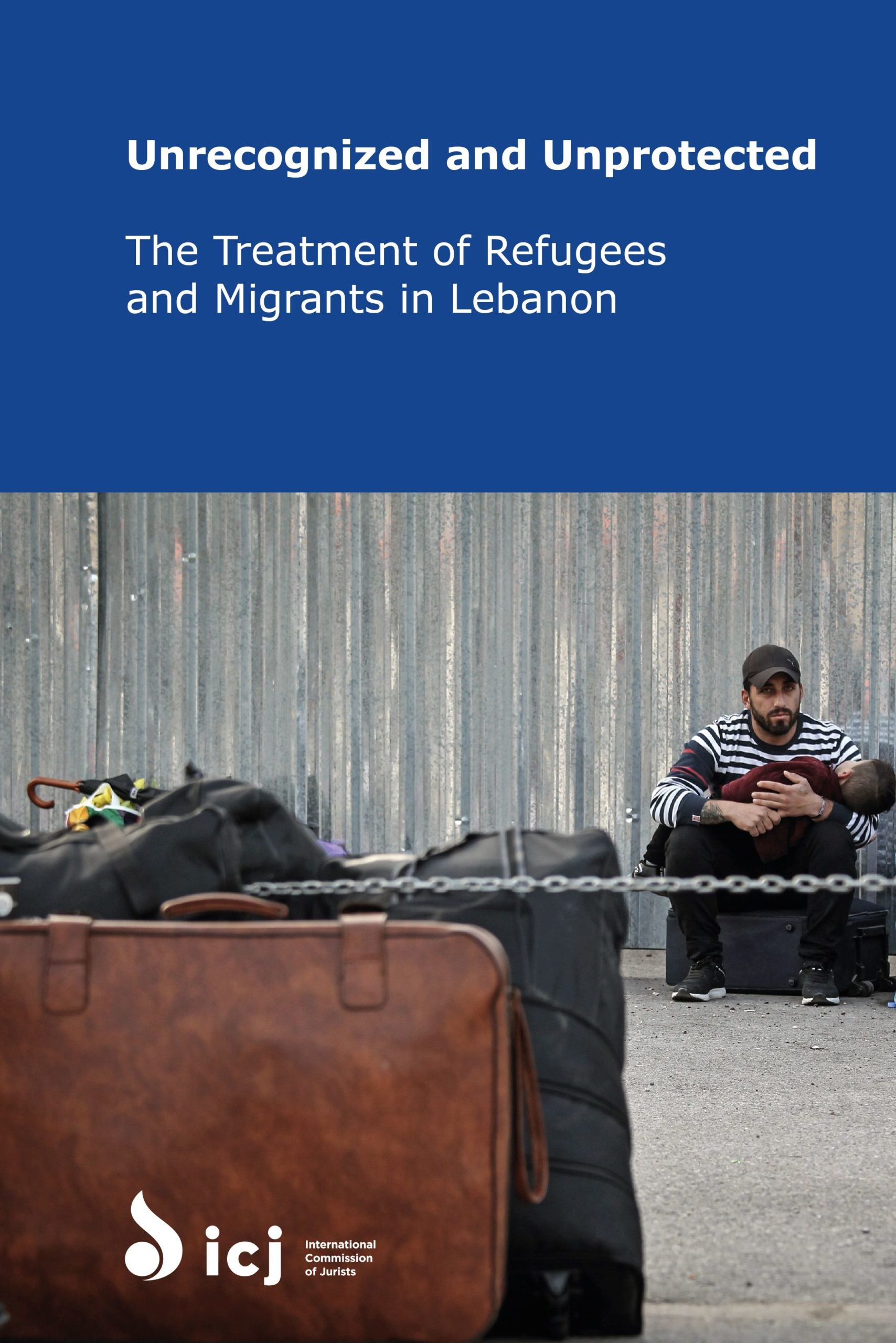In a report published today, the ICJ calls on the Lebanese authorities to adopt and enforce a just, fair and effective legal and policy framework to address the plight of refugees, migrants and stateless persons and ensure the protection of their human rights in full compliance with Lebanon international law obligations.
In particular, the ICJ calls on the Lebanese authorities to strictly comply with their non-refoulement obligations, including by ensuring that no individual is transferred to a country where he or she faces a real risk of persecution or other forms of serious harm, such as torture or cruel, inhuman or degrading treatment or punishment.
“Lebanon has the highest refugee population per capita of any country in the world, yet it lacks any framework or procedures for individuals claiming international protection to have access to an effective process for determining their entitlement to such protection”, said Said Benarbia, ICJ MENA director.
“It is high time for the Lebanese authorities to address this normative gap and reverse their harmful policies and practices that undermine refugees’ human rights, including their right to not be subjected to refoulement.”
In its report Unrecognized and Unprotected: The Treatment of Refugees and Migrants in Lebanon the ICJ analyses how normative gaps, together with restrictive provisions of the 1962 Law of Entry and Exit, including those criminalizing “irregular entry”, undermine the right of refugees to an individual examination of their asylum claim, their right to liberty and security of person, and their right to an effective legal remedy against human rights violations.
The Lebanese authorities should ensure that no-one is deprived of their liberty solely on grounds of their immigration status, including in cases of “irregular entry” or stay. Detention must only be resorted to when there is both a clear legal and factual basis to justify it, and when it is necessary, reasonable and proportionate in the circumstances of the individual case at hand.
In the report, the ICJ expresses concern that legal and policy gaps – coupled with excessive and unchecked powers to adopt and implement migration and asylum-related policies on the part of the authorities, such as the General Security Office, local municipalities, the Ministry of Labour and the Lebanese army – are the reasons why violations of the human rights of refugees, migrants and stateless persons are rife in Lebanon.
In light of this, the ICJ calls on the Lebanese Council of Ministers and Parliament to ensure that all migration and asylum-related policies fully comply with Lebanon’s obligations under international law.
The restrictions on Syrian refugees with respect to their residency and freedom of movement and the raids and arbitrary arrests and detentions they are subjected to effectively continue to force many of them to return to Syria. Their return in those circumstances is anything but voluntary and amounts to constructive refoulement.
“Lebanon should establish a moratorium on all removals to Syria and ensure that internationally protected individuals are not transferred to a country where they face a real risk of persecution,” Benarbia added.
The restrictions and high costs imposed for obtaining or renewing legal residence permits in Lebanon force many migrants and refugees to remain in the country “illegally”, contributing to significant violations of their right to freedom of movement and to making them further liable to detention and deportation.
Background:
The ICJ addresses a number of recommendations for the Lebanese authorities in this report, including the following:
1. Become a party to the following treaties:
- the 1951 UN Refugee Convention and to its 1967 protocol;
- the 1954 UN Convention relating to the Status of Stateless Persons and the 1961 Convention on the Reduction of Statelessness;
- the International Convention on the Protection of the Rights of All Migrant Workers and Members of Their Families;
2. Ensure that people entitled to international protection, chiefly refugees, are not penalized for their “illegal” entry and stay;
3. Ensure that migrants, refugees, asylum seekers and stateless persons have – at all times and regardless of their immigration status under domestic law – the right to access the courts, to claim and be granted an effective remedy and reparation for violations of civil, political, economic, social and cultural rights recognized under international law;
4. Ensure that all allegations of torture and other ill-treatment against refugees and migrants, including those instances linked to death in police and military custody, be investigated promptly, independently and thoroughly, and those responsible be held to account.
Contact
Said Benarbia, Director, ICJ Middle East and North Africa Programme, t: +41-22-979-3817; e: said.benarbia(a)icj.org
Download
Lebanon-Migrant rights-Publications-Reports-Thematic reports-2020-ENG (full report in English, PDF)
Lebanon-refugees report-News-2020-ARA (story in Arabic, PDF)
Lebanon-Migrant rights-Publications-Reports-Thematic reports-2020-ARA (full report in Arabic, PDF)

